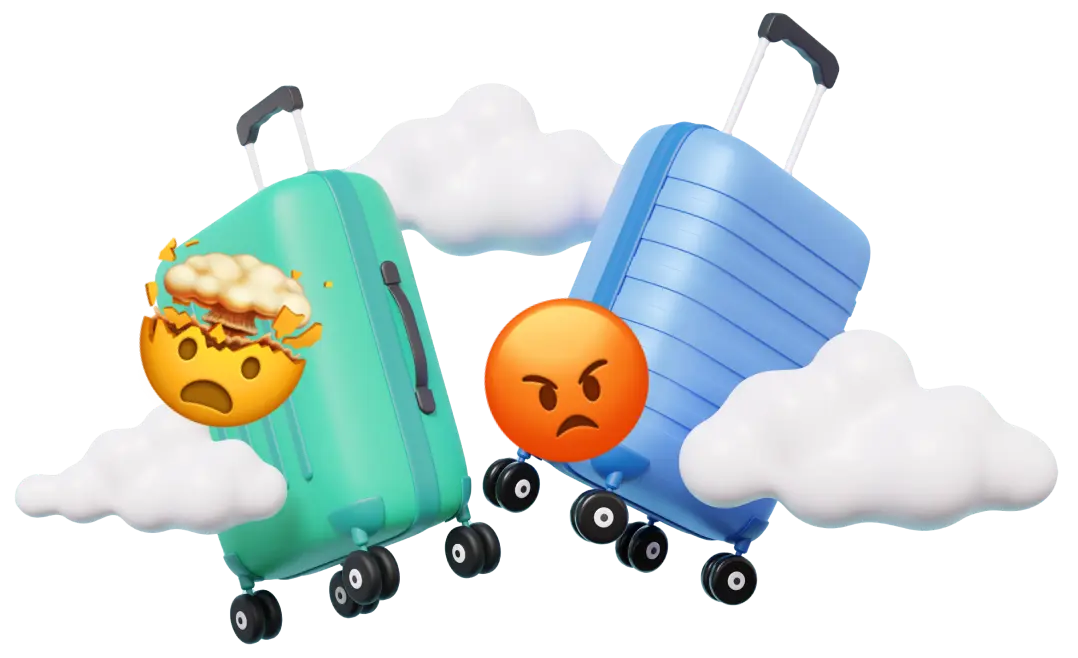
The Landmark Cases That Shaped EU261: Part 2
Key court rulings continue to shape EU261, clarifying passenger rights in cases of technical issues, strikes, and extraordinary events. Learn how these decisions impact your compensation.
EU261 has become the backbone of passenger rights in Europe, but it didn’t reach its current form overnight. While the regulation provided a framework for compensation and care, key court rulings have been instrumental in refining its scope and holding airlines accountable. In Part 1, we looked at early cases that laid the groundwork. Now, let’s see more recent rulings that shaped how EU261 is interpreted today.
Van der Lans v. KLM (2015): No Excuse for Technical Issues
The Case:
In this case, KLM argued that unexpected technical issues exempted them from paying compensation under EU261, claiming these were “extraordinary circumstances.” However, Van der Lans challenged this, stating the airline’s reasoning was too vague and inconsistent with the regulation.
The Decision:
The European Court of Justice (ECJ) ruled that even unexpected technical issues should not automatically qualify as extraordinary circumstances unless they result from external factors outside the airline’s control (e.g., sabotage or terrorism). Routine wear and tear or even sudden malfunctions are part of normal operations.
Why It Matters:
This ruling reinforced the precedent set by Wallentin-Hermann (2008), further limiting airlines’ ability to use technical issues as a blanket excuse to deny compensation. It underlined the expectation that airlines must anticipate and manage operational challenges, ensuring passengers aren’t left bearing the cost of disruptions.
Krusemann v. TUIfly (2018): Strikes and Accountability
The Case:
In 2016, TUIfly faced widespread disruptions caused by “wildcat strikes” (spontaneous walkouts) of its employees. The airline argued that these strikes were extraordinary circumstances beyond its control and refused to compensate affected passengers.
The Decision:
The ECJ ruled that such strikes, while disruptive, do not qualify as extraordinary circumstances. Since these labor actions stemmed from internal disputes and working conditions, they were considered inherent to the airline’s operations. As a result, passengers were entitled to compensation for the delays and cancellations.
Why It Matters:
This ruling established a critical precedent: airlines cannot use internal labor disputes to evade their obligations under EU261. It made clear that airlines must account for the risks tied to their workforce and cannot shift the burden of these disruptions onto passengers.
Germanwings GmbH v. Pauels (2019): When the Unexpected Really Is Extraordinary
The Case:
A Germanwings flight was delayed after a screw left on the runway caused damage to the aircraft’s tire. The airline claimed this incident constituted extraordinary circumstances, as it had no control over foreign objects on the tarmac.
The Decision:
The ECJ sided with the airline, ruling that damage caused by foreign objects on the runway qualifies as an extraordinary circumstance. Because the incident was outside the airline’s control and could not have been prevented through regular maintenance, Germanwings was exempt from paying compensation.
Why It Matters:
This case highlighted the limits of EU261, providing a clear example of what truly qualifies as extraordinary circumstances. The decision offered protection for airlines in genuinely unavoidable situations while maintaining the principle of fairness for passengers.
Refining Passenger Rights
These cases show how EU261 continues to evolve through real-world challenges. The rulings have strengthened passenger protections and provided much-needed clarity about where airlines’ responsibilities begin and end. From limiting the misuse of “technical issues” to holding airlines accountable for internal disputes, these judgments ensure fairness in the skies.
As the aviation industry faces new challenges, more cases will inevitably shape the future of EU261. Staying informed about these developments is essential for passengers to understand and assert their rights. At Langround, we’re committed to keeping you updated and helping you navigate the process of claiming flight compensation.

Was your flight disrupted?
Submit your claim now and get up to €600 in flight compensation!
Company
Newsletter
© 2026 Langround, All Rights Reserved
